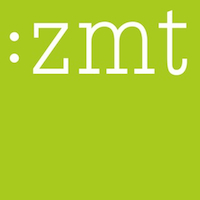| Pages in topic: [1 2] > | Thoughts On Working With AI to fill the job drought gap? Thread poster: Stephen Young
|
|---|
Stephen Young
United States
Local time: 20:01
Japanese to English
+ ...
I work with Japanese -> English in many different services, including translation, review, subtitles, LQA, native checks, light nMTPE, heavy MTPE, transcription, etc.
However, it seems (for me anyway) that things dried up last month and look a little ok for May (I know GoldenWeek is happening and is a thing, haha).
Because of this, I've felt almost forced to start moving into working with AI in a technical and linguistic sense in order to fill the gaps, which I am 50/50 on sin... See more I work with Japanese -> English in many different services, including translation, review, subtitles, LQA, native checks, light nMTPE, heavy MTPE, transcription, etc.
However, it seems (for me anyway) that things dried up last month and look a little ok for May (I know GoldenWeek is happening and is a thing, haha).
Because of this, I've felt almost forced to start moving into working with AI in a technical and linguistic sense in order to fill the gaps, which I am 50/50 on since I love translation; it's what I've always done, but also have a personal love for tech so I don't mind working for AI to fill the gaps, but just wish it would all go back to normal.
As a side note to this, I have noticed my once normal, if not below normal, rates are being treated like super insanely high rates.
Have any of you guys been doing something on the side to wait out the drought, or are you not in a drought?
Also, have you're used-to-be standard rates now become classified as overly high rates? ▲ Collapse
| | | | Zea_Mays 
Italy
Local time: 02:01
English to German
+ ...
| What does it mean "working with AI"? | May 3, 2024 |
STEPHEN YOUNG wrote:
I've felt almost forced to start moving into working with AI in a technical and linguistic sense in order to fill the gaps
I'm not sure what this means - doing LLM output evaluation? That would come up to shooting yourself in the foot. (Rates for those jobs are bad too, so I don't think it is a livesafer.)
As for the lack of assignments, with the current economic slowdown we'll have to wait at least until next year in order to see things recover.
| | | | Lieven Malaise
Belgium
Local time: 02:01
Member (2020)
French to Dutch
+ ...
After a rather slow month of January and a better month of February I have been working like crazy for 2 months straight. So no drought here (yet).
| | | | Zea_Mays 
Italy
Local time: 02:01
English to German
+ ...
| quite diversified panorama | May 3, 2024 |
Lieven Malaise wrote:
After a rather slow month of January and a better month of February I have been working like crazy for 2 months straight. So no drought here (yet).
We are among the lucky ones with still good amount of work, but I know from some agencies I have been working with for over 9 years that the assignments have diminished since end of last year, and that clients want to save money using MTPE. I actually got new jobs from one of them just this month.
From what we hear here on ProZ, there's quite a number of translators reporting a drop in work. Perhaps it depends on industry, region of residence and language combinations.
[Bearbeitet am 2024-05-03 10:17 GMT]
| | |
|
|
|
Lieven Malaise
Belgium
Local time: 02:01
Member (2020)
French to Dutch
+ ...
Yes, it's almost impossible to draw conclusions. There are translators that report drops in work, but there are still way too few of them to not consider it as anecdotical. Furthermore it is very unclear why those drops occur. It might be the economy or "AI", but there might be other reasons at play:
- An ever increasing number of translators (it seems everyone who wants to earn an extra buck engages in translation) that basically don't stand a chance (no degree, no talent, clueless... See more Yes, it's almost impossible to draw conclusions. There are translators that report drops in work, but there are still way too few of them to not consider it as anecdotical. Furthermore it is very unclear why those drops occur. It might be the economy or "AI", but there might be other reasons at play:
- An ever increasing number of translators (it seems everyone who wants to earn an extra buck engages in translation) that basically don't stand a chance (no degree, no talent, clueless, etcetera).
- Delivering bad value for money, which will be less tolerated in times of crisis.
- Rates that are too high. There has already a lot been said about rates, but if you are not in a niche or in the more demanding transcreation/rewriting business and your word rate is still higher than 0,10, then you shouldn't complain about getting less work (unless you target direct clients, but in that case you are even more exposed to the real economic situation).
- Refusal to apply an MTPE discount or to get involved in MTPE altogether.
Personally I'm only interested in drops because of AI (but how would you measure that?) or the economy, because those are real threats you can't do much about. All the other mentioned above can be resolved by being smart, excellent, ambitous, realistic and highly professional. ▲ Collapse
| | | |
Zea_Mays wrote:
Perhaps it depends on ... language combinations.
As I've said before, it's definitely an issue in Fr-Eng.
Worth noting that even if it's still perhaps a matter of anecdotes & perception rather than hard stats, even what could be viewed as the de facto industry news channel, Slator, is now reporting it as a fact.
In terms of what can be done - it's not even a necessarily matter of translating any more. Someone who needs a communication - a press release, say - in English, but doesn't speak it, can just issue instructions in any language about what the salient facts need to be, and AI does the rest.
I did an experiment a while back asking AI, in French, to draft a press release in English about a new CEO. I had a few bullet points of basic facts, & asked ChatGPT to make it "typical" in style. In the output, it even invented a quote from my fictional CEO, without being asked, saying how he was looking forward to the challenge, etc. Incredible stuff, really.
That kind of thing - translation adjacent, without the bother of producing a decent source, is also a factor.
| | | |
I haven’t noticed a big difference in the amount of work but work has been more irregular than ever: a slow month is followed by a hectic one… January was excellent, February was bad, March was so, so, April was good. If I compare to last year, I have been invoicing more this year than in 2023. I must say that I have been working mostly in EN/PT (even from French clients) and I have been noticing a strong decline in my other language pairs (FR/PT, ES/PT and IT/PT). However, I have a big proj... See more I haven’t noticed a big difference in the amount of work but work has been more irregular than ever: a slow month is followed by a hectic one… January was excellent, February was bad, March was so, so, April was good. If I compare to last year, I have been invoicing more this year than in 2023. I must say that I have been working mostly in EN/PT (even from French clients) and I have been noticing a strong decline in my other language pairs (FR/PT, ES/PT and IT/PT). However, I have a big project IT/PT scheduled for next week. ▲ Collapse
| | | | Peter Motte 
Belgium
Local time: 02:01
Member (2009)
English to Dutch
+ ...
| Invented a quote? | May 9, 2024 |
Charlie Bavington wrote:
I did an experiment a while back asking AI, in French, to draft a press release in English about a new CEO. I had a few bullet points of basic facts, & asked ChatGPT to make it "typical" in style. In the output, it even invented a quote from my fictional CEO, without being asked, saying how he was looking forward to the challenge, etc. Incredible stuff, really.
That might be incredible, but it's also not acceptable that you insert fictional quotes.
It only shows that you have to be very carefull with AI translations, and people not knowing the target language take risks if they have something translated by AI and leave it at that.
[Edited at 2024-05-09 09:57 GMT]
[Edited at 2024-05-09 09:58 GMT]
| | |
|
|
|
Colin Smith
United Kingdom
Local time: 01:01
French to English
+ ...
| Fictional quotes | May 9, 2024 |
Peter Motte wrote:
That might be incredible, but it's also not acceptable that you insert fictional quotes.
It only shows that you have to be very careful with AI translations, and people not knowing the target language take risks if they have something translated by AI and leave it at that.
[Edited at 2024-05-09 09:57 GMT]
[Edited at 2024-05-09 09:58 GMT]
I think you've misunderstood Charlie's point, Peter. He didn't insert fictional quotes, the AI created them, and they're only fictional because the CEO was also fictional for the sake of the experiment.
The point is that many companies are no longer producing a document in their native language and having it translated. They simply generate documents directly in the required languages using AI.
From my experience of doing hybrid "legacy TM"/PEMT translations over the last few years, the MT/AI output is superior to human translation. The human stuff from the TM is riddled with errors while the MT output is near perfect (I'm talking about FR>EN legal/financial stuff here. I know that MT is still not ideal for translating pre-Islamic Arabic poetry. Yet.)
| | | | Colin Smith
United Kingdom
Local time: 01:01
French to English
+ ...
| 12-month drought | May 9, 2024 |
I have seen a halving of my usual volumes since 2020, I was still busy Feb - May until this year (FR>EN financial & legal), the vast majority on PEMT of documents that in the past I would have translated in Trados.
This year I have had virtually no work since January. My agency clients tell me that all they get is minor updates to be reviewed (e.g. 3000 new words in a 250,000 word set of documents. Most of the "new words" turn out to be variations in punctuation or typos).
... See more I have seen a halving of my usual volumes since 2020, I was still busy Feb - May until this year (FR>EN financial & legal), the vast majority on PEMT of documents that in the past I would have translated in Trados.
This year I have had virtually no work since January. My agency clients tell me that all they get is minor updates to be reviewed (e.g. 3000 new words in a 250,000 word set of documents. Most of the "new words" turn out to be variations in punctuation or typos).
This is the end, as far as I am concerned.
After 20 years in the translation business I am quite frankly ill-equipped to take on anything remotely related to the world of real work, such as colleagues, commuting, offices, lunch breaks etc. ▲ Collapse
| | | | | How press releases work | May 16, 2024 |
Colin Smith wrote:
Peter Motte wrote:
That might be incredible, but it's also not acceptable that you insert fictional quotes.
It only shows that you have to be very careful with AI translations, and people not knowing the target language take risks if they have something translated by AI and leave it at that.
[Edited at 2024-05-09 09:57 GMT]
[Edited at 2024-05-09 09:58 GMT]
I think you've misunderstood Charlie's point, Peter. He didn't insert fictional quotes, the AI created them, and they're only fictional because the CEO was also fictional for the sake of the experiment.
And this might come as a surprise, but generating fictional quotes is also how human-written press releases often work.* The company's press office will write a press release complete with suitable quotes from the CEO, then the CEO reads it and signs off on it. There's no time for sending a message along the lines of: "Hey, CEO, we're writing a press release on topic XYZ, could you please send us a few statements to include as quotes?" or "Could we schedule an interview to talk about this topic so we can get a few quotes for the press release?" No one has time for that. Of course if the release is quoting a speech the CEO recently gave, then they're "real" quotes, but otherwise you could take the AI-generated draft of the release complete with made-up quotes, send it to the CEO to get approval for the quotes, and the CEO wouldn't bat an eye as long as those quotes are reasonable.
*My source for this is over 10 years of working in a communications division and watching my colleagues do this for most press releases.
| | | | | Press releases | May 16, 2024 |
Rita Translator wrote:
generating fictional quotes is also how human-written press releases often work.
I imagine Peter knows this. His point was more that we as translators can't just insert stuff unless asked to do so. (Although we do of course put words into people's mouths for a living.)
You'd think press releases would be ideal fodder for AI, given how formulaic and OTT they normally are. But then you'd think the same about estate agents' property particulars (realtors' sales brochures), and I know from a lot of recent experience that you can still spot the AI from a mile off. Maybe once the machines get a sense of proportion, we really will be ****ed.
| | |
|
|
|
Lieven Malaise
Belgium
Local time: 02:01
Member (2020)
French to Dutch
+ ...
| Ancient custom | May 16, 2024 |
Rita Translator wrote:
"Could we schedule an interview to talk about this topic so we can get a few quotes for the press release?" No one has time for that. Of course if the release is quoting a speech the CEO recently gave, then they're "real" quotes, but otherwise you could take the AI-generated draft of the release complete with made-up quotes, send it to the CEO to get approval for the quotes, and the CEO wouldn't bat an eye as long as those quotes are reasonable.
These are old practices. Even I, as an inhouse translator, once (somewhere between 2000 and 2005) "gave" an interview that never took place and was published on the company website. 😊
| | | |
Christopher Schröder wrote:
Maybe once the machines get a sense of proportion, we really will be ****ed.
They will, and we will be.
I know it's been said about a lot of technology over the years (what happened to the jet pack Tomorrow's World promised me back in the 70s, eh?) and stuff people were raving about has been quietly discontinued (e.g. Google glasses) but I think AI has gained enough traction to hang around and so it will inevitably get better.
And unfortunately, I'm inclined to agree with Colin, as we seem to deal in similar stuff in the same pair. Legacy TMs contain some absolute garbage produced by people years ago. AI stuff might need tweaking but I don't think I've ever seen it just be plain wrong in terms of meaning in the way people sometimes are, not with proper sentences, anyway.
I emphasise here: in Fr-Eng, business-y material.
It could well still be catastrophic translating from Norwegian to Bulgarian about open-heart surgery. I kinda hope it is.
| | | | Ari Dupree
United States
Local time: 19:01
French to English
| Okay, but what happens when language drifts. | May 17, 2024 |
Charlie Bavington wrote:
I did an experiment a while back asking AI, in French, to draft a press release in English about a new CEO. I had a few bullet points of basic facts, & asked ChatGPT to make it "typical" in style. In the output, it even invented a quote from my fictional CEO, without being asked, saying how he was looking forward to the challenge, etc. Incredible stuff, really.
It is incredible, of course. But will it still be able to do that ten years from now, when 'typical' style has shifted with cultural changes? Because if it doesn't, then it's just a fancy toy. The AI's ability to stay relevant over time is going to depend on the creators being dedicated to updating the massive data sets, and/or hiring actual translators to generate those data sets. That is going to be an ongoing problem for them, sooner than anyone thinks. (Particularly sooner than CEOs who tend to never look more than five years down the road.)
The biggest limitation of AI is that it requires massive data sets that have to be updated on an ongoing basis (from high-quality, credible sources) if the tool is going to stay relevant over the course of years. A big challenge facing AI (or so I hear) is that the required data sets are so large that it's unwieldy to update them. Culture changes quickly, and they are going to struggle to keep up. (Imagine trying to market anything tech-related using the same language and strategies that were employed even last year, much less five years ago...)
I'm not an AI expert, but I was told by someone who is that no one is actually innovating around this problem right now, because it would require inventing generalized AI. Right now, they're just making the same style of learning algorithms look more impressive by throwing increasingly larger computing power and data sets at them. The larger the data sets get, the more impressive the AI looks in the short term, but the harder it gets to keep them relevant in the long term.
AI is here to stay and it's definitely shaking up the industry, and has been doing so since I started working over ten years ago (back then, it was Google Translate that was going to put us all out of jobs, but I've noticed we're still here...) I just don't believe it's going to spell the end of translation as a profession, any more than the invention of the computer spelled the end of accounting as a profession.
(And that's not even to touch the potential legal troubles these tools may have to face down the road... There's a lot of talk going on about who is responsible when an AI makes a mistake that results in damage that a human could be sued for. So far, programmers have not been held responsible for what the programs do, but that could change at any moment. If it does, this tech will be dead in the water, because these programmers can't predict what their programs are going to do, even when human lives and livelihoods are on the line.)
[Edited at 2024-05-17 17:50 GMT]
| | | | | Pages in topic: [1 2] > | To report site rules violations or get help, contact a site moderator: You can also contact site staff by submitting a support request » Thoughts On Working With AI to fill the job drought gap? | Wordfast Pro | Translation Memory Software for Any Platform
Exclusive discount for ProZ.com users!
Save over 13% when purchasing Wordfast Pro through ProZ.com. Wordfast is the world's #1 provider of platform-independent Translation Memory software. Consistently ranked the most user-friendly and highest value
Buy now! » |
| | CafeTran Espresso | You've never met a CAT tool this clever!
Translate faster & easier, using a sophisticated CAT tool built by a translator / developer.
Accept jobs from clients who use Trados, MemoQ, Wordfast & major CAT tools.
Download and start using CafeTran Espresso -- for free
Buy now! » |
|
| | | | X Sign in to your ProZ.com account... | | | | | |


































